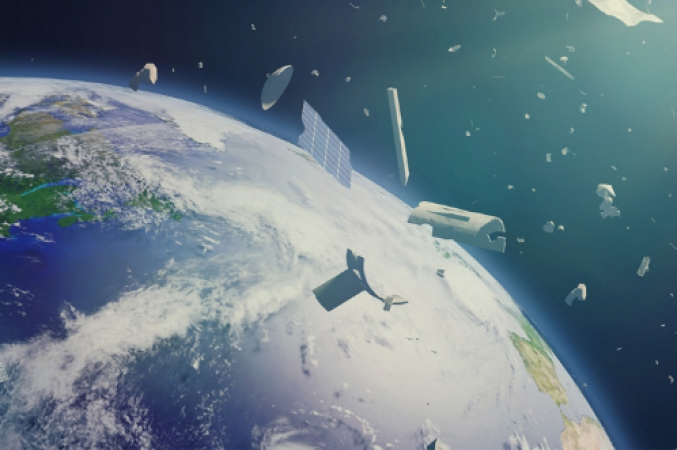
USA: The UN High Seas Treaty, which aims to safeguard marine life in oceans outside of national borders, was drafted earlier this month. Calls for a new space treaty have been made in light of the venture's success. A legally binding international treaty is urgently needed to hold satellite manufacturers and operators accountable for the growing risk that space debris poses.
Technology advancements have made life easier for people. However, this led to a sharp increase in pollution on Earth. Now, it appears that not even space has been spared. A space debris treaty is urgently needed in order to safeguard us from the risks that space junk poses. We do, however, have an uphill task ahead of us.
At this time, there are about 9,000 satellites orbiting the Earth. By 2030, this number may surpass 60,000. Why do you enquire? It is due to a shift towards massive clusters of tiny satellites, after all.
Also Read: These features might soon be available on Android and iOS via WhatsApp
Notably, Elon Musk-owned SpaceX has successfully launched more than 3,000 Starlink satellites into low Earth orbit (LEO), and by 2026, that number will reach 12,000 satellites.
The majority of satellites float at an altitude of under 1,000 km. In addition, there is a lot of decaying equipment, spent rocket parts, and collision debris in the LEO.
Experts worry that Envisat, the largest Earth observation satellite operated by the ESA and in low earth orbit (LEO) for more than a decade, could be struck by debris. There are approximately 100 trillion untraced fragments of obsolete satellites, which is a significant danger.
Any potential treaty must be legally binding and applicable to all nations on the planet. Favoritism cannot be an option.
The terms of the agreement would require satellite producers and users to remove obsolete equipment from orbit and clean up the debris left behind when orbiting objects collided.
Also Read: The term "decentralised social network" has become popular among social media outlaws
In addition to the environmental effects of collisions, there may be significant economic costs if treaties are not in place.
The fact that the very nations that must compromise are geopolitical rivals makes it difficult to negotiate a space debris treaty that will last and make a difference "Northumbria University Professor Christopher Newman said.
"It appears that nations who want to play a leading role in this field will have to work to include as many others onboard," he added.
Also Read: Why the GPT-4 from OpenAI is regarded as a "game changer"
On March 4, the UN High Seas Treaty was formally adopted. It is a binding agreement that aims to designate marine protected areas in 30% of the world's international waters by 2030. (MPAs). Only 1.2% of these waters are currently regulated.